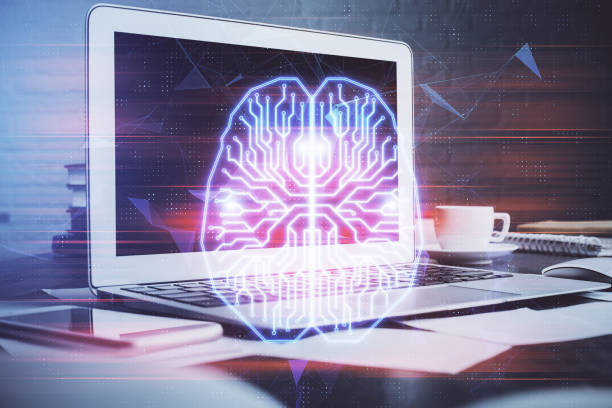Introduction to the World of Mobile AI Applications

Today, #Artificial_Intelligence (AI) has increasingly permeated our lives.
From smart voice assistants to self-driving cars, AI is changing the way we interact with the world.
One of the areas where AI has made significant advancements is mobile applications.
Mobile AI applications, by leveraging advanced algorithms, provide users with new and diverse functionalities.
In this article, we will comprehensively explore mobile AI applications, their uses, advantages, and challenges.
Artificial Intelligence (AI) generally refers to a computer system’s ability to imitate human cognitive functions such as learning, problem-solving, and decision-making.
In the context of mobile AI applications, this means developing programs that can analyze data, recognize patterns, make predictions, and answer questions, all on a mobile device.
Mobile AI applications perform a wide range of tasks, from improving photo and video quality to providing personalized recommendations for shopping and entertainment.
These applications, utilizing techniques such as machine learning, natural language processing, and computer vision, are capable of delivering intelligent and efficient user experiences.
Are you losing customers due to your online store’s outdated appearance or slow speed? Rasaweb’s expert team solves these problems by designing professional e-commerce websites!
✅ Increased customer trust and brand credibility
✅ Blazing fast speed and excellent user experience
Get a free consultation with Rasaweb now ⚡
Amazing Applications of AI in Mobile
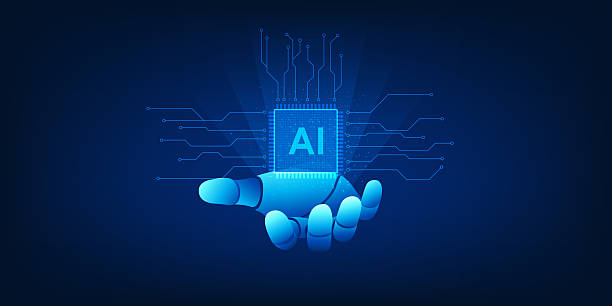
Mobile AI applications have various uses and make our daily lives easier.
Some of the most important applications of these apps include:
- Smart Voice Assistants: Such as Siri and Google Assistant, which allow users to execute commands, ask questions, and search for information using their voice.
Voice assistants understand and respond to user speech using Natural Language Processing (NLP). - Facial Recognition: For unlocking phones, identity verification, and organizing photos.
Facial recognition algorithms identify individuals by analyzing facial features. - Language Translation: Enabling live translation of texts and conversations.
These applications can provide accurate and fluent translations using Neural Machine Translation (NMT) networks. - Photo and Video Editing: Improving image quality, noise reduction, and adding special effects.
In this field, mobile AI applications can automatically edit and optimize images using deep learning algorithms. - Medicine and Health: Diagnosing diseases, providing medical consultations, and tracking health status.
By analyzing medical data, these applications can assist doctors in diagnosing and treating diseases. - E-commerce: Providing personalized recommendations, fraud detection, and improving the online shopping experience.
In this area, mobile AI applications can provide suitable recommendations and prevent fraud by analyzing user behavior.
Advantages of Using Mobile AI Applications

Using mobile AI applications offers many advantages, including the following:
- Improved Efficiency: By automating tasks, they help users work faster and more efficiently.
- Personalization: They enhance the user experience by providing personalized suggestions and content.
- Easy Accessibility: They can be used anytime, anywhere.
- Cost Reduction: By automating processes, they reduce costs.
- Increased Accuracy: They enhance the precision and correctness of tasks using advanced algorithms.
| Advantage | Description |
|---|---|
| Improved Efficiency | By automating tasks, they help users work faster and more efficiently. |
| Personalization | By providing personalized suggestions and content, they improve the user experience. |
| Easy Accessibility | They can be used anytime, anywhere. |
| Cost Reduction | By automating processes, they reduce costs. |
| Increased Accuracy | By using advanced algorithms, they increase the precision and accuracy of tasks. |
Challenges in Developing Mobile AI Applications
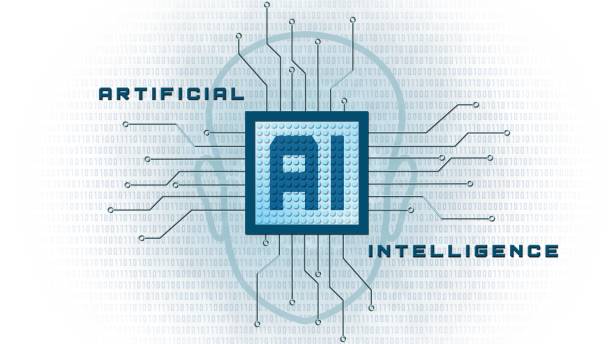
Developing mobile AI applications comes with several challenges, including the following:
- Resource Limitations: Mobile devices have limited resources such as memory, processor, and battery, which developers must consider.
- Privacy Protection: The collection and use of user data must be done with respect for privacy.
- Security: Mobile AI applications must be protected against cyber attacks and misuse.
- Interpretability: Understanding how AI algorithms make decisions can be challenging.
- Bias: AI algorithms may be exposed to biases present in training data.
To overcome these challenges, developers must use optimization techniques, encryption, and transparent and explainable approaches for developing mobile AI applications.
Did you know that poor online store design can drive away up to 70% of your potential customers? Rasaweb is your answer! With our specialized services for professional and user-friendly e-commerce website design, we will revolutionize your sales.
✅ Significant increase in sales and revenue
✅ Full optimization for search engines and mobile
⚡ [Get a free consultation from Rasaweb]
A Look into the Future of Smart Mobile Applications
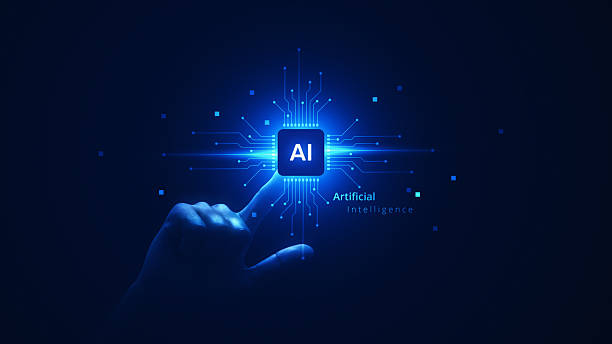
The future of mobile AI applications is very bright and full of opportunities.
With technological advancements, these applications are expected to become smarter, more efficient, and more practical.
Some of the key trends we will see in the future include:
- Greater Integration with the Internet of Things (IoT): Mobile AI applications are increasingly integrating with IoT devices to create smarter homes, cities, and industries.
- Augmented Reality (AR) and Virtual Reality (VR): Mobile AI applications will provide richer and more interactive user experiences using AR and VR.
- Federated Learning: This technique allows mobile AI applications to learn from users’ local data without sharing sensitive data.
- Explainable AI: Efforts to develop AI algorithms that can explain how they make decisions.
Overall, mobile AI applications will increasingly play a significant role in our lives and will change how we interact with the world.
Introducing Some Examples of Successful Mobile AI Applications
![]()
In this section, we introduce some examples of successful mobile AI applications:
- Google Lens: This application allows users to identify objects, search for information about them, and translate texts using their phone’s camera.
- FaceApp: This application, using deep learning algorithms, can apply various changes to people’s faces, such as altering age, gender, and facial expressions.
- Otter.ai: This application, using natural language processing, can convert audio to text and take notes during meetings and conferences.
- YouCam Makeup: This application allows users to virtually apply makeup and try out various cosmetic products.
These applications are just a few examples of the diverse uses of mobile AI applications and demonstrate how this technology can make our lives easier and more enjoyable.
Key Technologies in Mobile AI Application Development
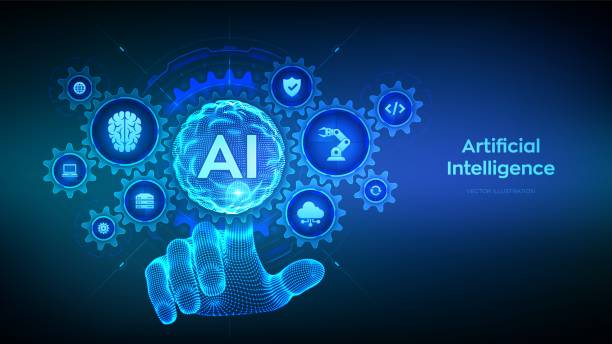
Developing mobile AI applications requires the use of various technologies, some of the most important of which include:
- Machine Learning: Algorithms that allow computers to learn from data without explicit programming.
Machine learning includes techniques such as supervised learning, unsupervised learning, and reinforcement learning. - Natural Language Processing: Techniques that allow computers to understand and generate human language.
- Computer Vision: Techniques that allow computers to understand and interpret images and videos.
- Neural Networks: Computational models inspired by the structure of the human brain, used for learning patterns in data.
- Deep Learning: A type of machine learning that uses deep neural networks to learn from large data sets.
| Technology | Description |
|---|---|
| Machine Learning | Algorithms that allow computers to learn from data without explicit programming. |
| Natural Language Processing | Techniques that allow computers to understand and generate human language. |
| Computer Vision | Techniques that allow computers to understand and interpret images and videos. |
| Neural Networks | Computational models inspired by the structure of the human brain and used for learning patterns in data. |
| Deep Learning | A type of machine learning that uses deep neural networks to learn from large data sets. |
Choosing the Right Platform for Mobile AI Application Development

Choosing the right platform for developing mobile AI applications depends on various factors, including:
- Application Type: The type of application you want to develop affects platform selection.
For example, if you want to develop a computer vision-based application, you might need to use platforms with strong support for computer vision libraries. - Developer Skills: Your developers’ skills also play a role in platform selection.
If your developers are familiar with a particular platform, it’s best to use that platform. - Budget: Your budget can also influence platform selection.
Some platforms are free, while others are costly. - Resources: The hardware and software resources required for developing mobile AI applications must also be considered.
Some popular platforms for developing mobile AI applications include:
- TensorFlow Lite: A lightweight machine learning framework optimized for mobile devices.
- Core ML: Apple’s machine learning framework for developing mobile AI applications on iOS.
- ML Kit: A set of machine learning APIs provided by Google, usable for developing mobile AI applications on Android and iOS.
Losing potential customers due to an unprofessional website? Rasaweb is your answer! With our specialized corporate website design services:
✅ Enhance your business’s credibility and standing
✅ Experience attracting more targeted customers
⚡ Act now to get a free consultation!
Security Considerations in Mobile AI Application Development
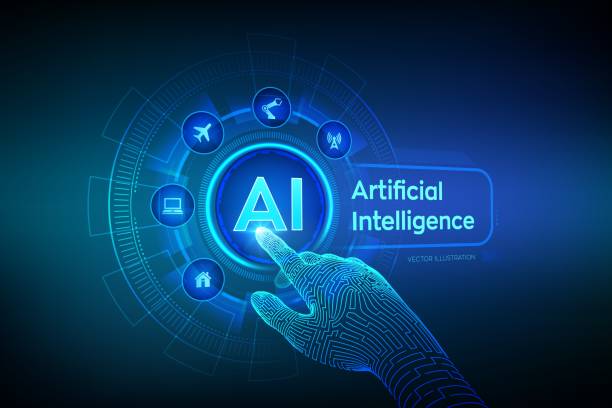
Security is one of the most important considerations in developing mobile AI applications.
Since these applications often deal with sensitive user data, they must be protected against cyber attacks and misuse.
Some of the most important security considerations in developing mobile AI applications include:
- Data Protection: User data must be securely stored and used only for authorized purposes.
- Authentication and Authorization: Users must be authenticated before accessing the application and should only have access to resources they are authorized to access.
- Encryption: Communications between the application and the server must be encrypted to prevent eavesdropping.
- Security Audits: The application should be regularly audited for security to identify and fix vulnerabilities.
- User Awareness: Users should be informed about security risks and educated on how to protect their information.
By observing these security considerations, you can protect your mobile AI applications from cyber attacks and misuse.
Summary and Key Points on Mobile AI Applications

In this article, we comprehensively examined mobile AI applications and discussed their uses, advantages, challenges, and future.
Here are some key points for summary:
- Mobile AI applications, by leveraging advanced algorithms, provide users with new and diverse functionalities.
- These applications have various uses and make our daily lives easier.
- Using mobile AI applications offers many advantages, including improved efficiency, personalization, easy accessibility, cost reduction, and increased accuracy.
- Developing mobile AI applications comes with several challenges, including resource limitations, privacy protection, security, interpretability, and bias.
- The future of mobile AI applications is very bright and full of opportunities, and these applications are expected to become smarter, more efficient, and more practical.
We hope this article has been useful to you and helped you better understand mobile AI applications.
Frequently Asked Questions
| No. | Question | Answer |
|---|---|---|
| 1 | What is a mobile AI application? | It is an application that implements artificial intelligence capabilities such as machine learning, natural language processing, or computer vision to perform intelligent tasks on mobile devices. |
| 2 | Name a few examples of mobile AI applications. | Voice assistants (like Siri, Google Assistant), augmented reality filters in cameras (like Snapchat, Instagram), facial recognition systems, and language translation apps. |
| 3 | How do mobile AI applications work? | Some run AI models directly on-device, while others use cloud-based processing for heavier computations. |
| 4 | What are the advantages of using AI in mobile applications? | Improved user experience through personalization, task automation, increased efficiency, and providing innovative and intelligent functionalities. |
| 5 | What are the challenges in developing mobile AI applications? | Hardware limitations (RAM, processor), battery consumption, the need for optimized models, and data privacy issues. |
| 6 | What technologies are used to build mobile AI applications? | Frameworks like TensorFlow Lite for Android and iOS, Core ML for iOS, and Google’s ML Kit. |
| 7 | How do mobile AI applications ensure user privacy? | By processing data locally on the device, reducing data transmission to servers, and using encryption and privacy-preserving techniques. |
| 8 | What will be the future of mobile AI applications? | It is expected that with advancements in mobile hardware and AI algorithms, these applications will become smarter, more efficient, and more integrated into daily life. |
| 9 | Can mobile AI applications work offline? | Yes, many of them can. AI models can be stored on the device and perform processing without requiring an internet connection, such as facial recognition or offline translation. |
| 10 | What are the key features of a good mobile AI application? | High accuracy, appropriate processing speed, optimized battery consumption, user-friendly interface, ability to learn and adapt, and user privacy protection. |
And other advertising services by Rasa Web advertising agency
- Smart Reportage: Professional optimization for customer behavior analysis using marketing automation.
- Smart Marketing Automation: Revolutionize customer acquisition with the help of key page optimization.
- Smart Custom Software: A professional solution for customer behavior analysis, focusing on custom programming.
- Smart Website Development: Professional optimization for campaign management using SEO-driven content strategy.
- Smart Marketplace: A professional solution for improving SEO rankings, focusing on customizing user experience.
And hundreds of other services in the field of internet advertising, advertising consulting, and organizational solutions.
Internet Advertising | Advertising Strategy | Advertorial
Resources
Complete Guide to Building Mobile AI Applications
Mobile AI Application Development Training
Mobile AI Learning Path
Comprehensive Review of Mobile AI
? Are you ready for your business to leap forward in the digital world? Experience a bright future with Rasaweb Afarin Digital Marketing Agency, specialists in secure website design and comprehensive online marketing strategies.
📍 Tehran, Mirdamad Street, Next to Central Bank, Southern Kazeroun Alley, Ramin Alley, No. 6

